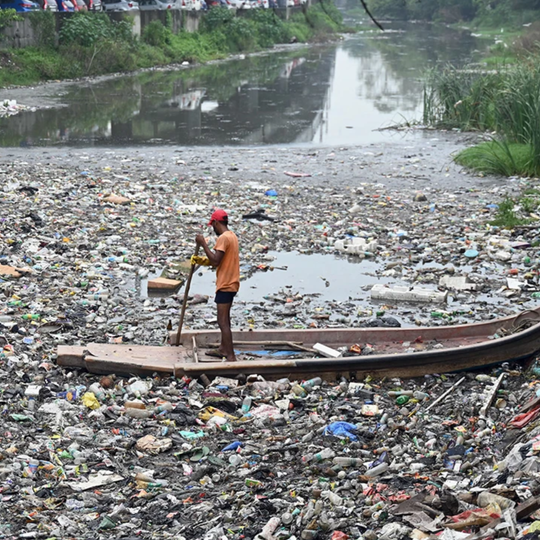
Plastic Hell
Our world is swimming in an ocean of plastic garbage. And just like Blue Whales that suck up millions of plankton each day, we are sucking up microplastics from the air, the water, and our food, day in and day out, like it or not.
The bottom line for this newsletter: avoid drinking liquids or eating food that is packaged in plastic, and even more so if the food or liquid is hot (think microwave).
Plastic is everywhere. Some examples: PVC (polyvinyl chloride) is in pipes, plastic bottles, packaging, IV tubing, cardiopulmonary bypass tubing, and much, much more. Polyethylene is in bags, films, and bottles; over 100 million tons are made yearly. And then there is polypropylene, which is in bottles, jars, yogurt containers, hot beverage cups, and food packaging.
Here is some enlightening data from a piece published in Nature in 2021: Microplastics Are Everywhere, But Are They Harmful?
- Plastic containers shed huge numbers of microplastics into hot water, and the amount of shedding depends highly on the temperature. Think plastic containers heated in microwaves and mixing baby formula with hot water in plastic baby bottles. It is estimated that a baby could swallow > one million microplastic particles/day by shaking baby formula in hot water in a plastic bottle.
- Microplastics have been found in everything, everywhere. Artic snow, shellfish, table salt, drinking water, and the air.
- It is estimated that humans ingest dozens to 100,000 microplastic particles per day, and in the worst cases, they may ingest the mass of a credit card yearly.
- The most worrisome microplastics are nanoplastics - particles < 1 μm - because of their ability to enter cells and disrupt cellular machinery. Until now, these have been nearly impossible to detect reliably.
- The final paragraph in the article: "By far the biggest gains would come from cutting out plastics that are used only once and discarded. There’s no point producing things that last for 500 years and then using them for 20 minutes.” It’s a completely unsustainable way of being.” In other words, stop buying water in plastic bottles.
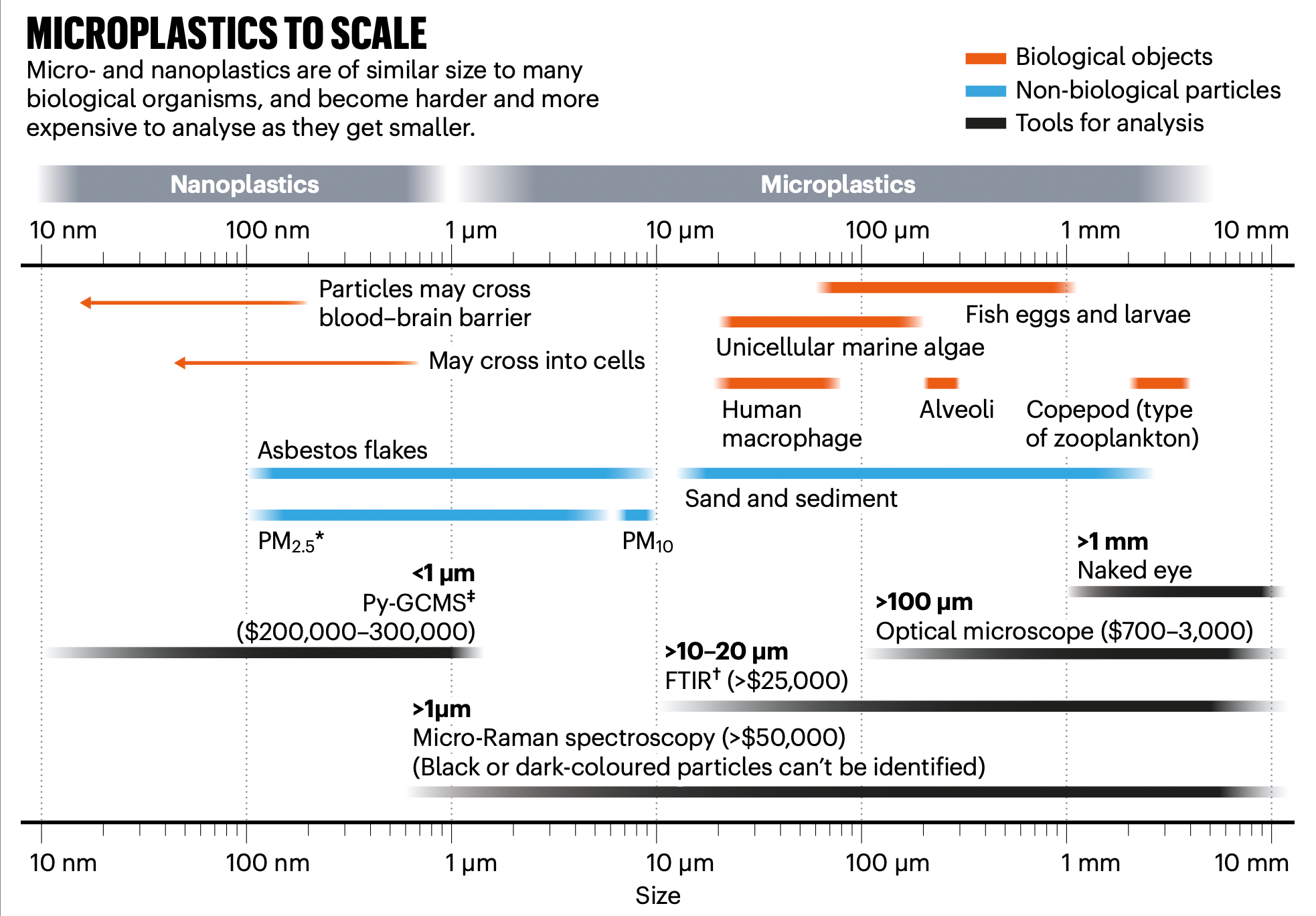
The whole mess outlined above is concerning enough, but because of the challenge of detecting nanoplastics in tissues, no real data about their presence or impact has been available, until now.
A prospective multicenter study from Italy published in the NEJM on 3/7/24 analyzed carotid endarterectomy plaques for micronanoplastics (MNP) from patients undergoing endarterectomy for asymptomatic carotid artery (>70% stenosis) disease using pyrolysis–gas-chromatography-mass spectrometry, stable isotope analysis, and electron microscopy. Recall that microplastics are defined as particles less than 5mm, and nanoplastics are particles less than 1 µm or 1000 nanometers.
The authors note that until this study, specific MNP had been shown to promote oxidative stress, inflammation, and apoptosis in endothelial cells and other vascular cells. Animal studies have supported the hypothesis that MNP can lead to altered heart rate, cardiac functional impairment, myocardial fibrosis, and endothelial dysfunction. However, the potential clinical relevance of these findings was unknown—until now.
Of 304 patients, 257 had a mean follow-up of 34 months. The primary endpoints of the study were the association of MNPs with a composite endpoint of MI, nonfatal stroke, or death from any cause. Secondary endpoints were levels of tissue biomarkers interleukin-18, interleukin-1β, tumor necrosis factor α (TNF-α), interleukin-6, CD68, CD3, and collagen.
Of 257 patients who completed a mean follow-up of 33.7 months, 150 had polyethylene detected in plaques (mean level of 21.7±24.5 μg per milligram of plaque), and 31 (12.1%) also had PVC (mean level of 5.2±2.4 μg per milligram of plaque). That leaves 107 with no detectable MNP's in their plaques.
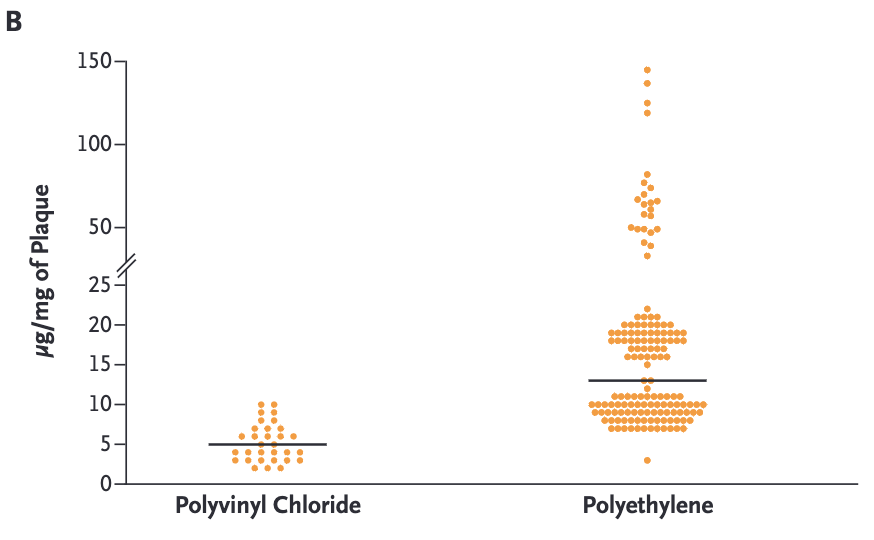
Looking at the inflammatory biomarkers (referred to as plaque phenotype) showed correlations between the amount of polyethylene present in the plaques and the expression levels of the markers.
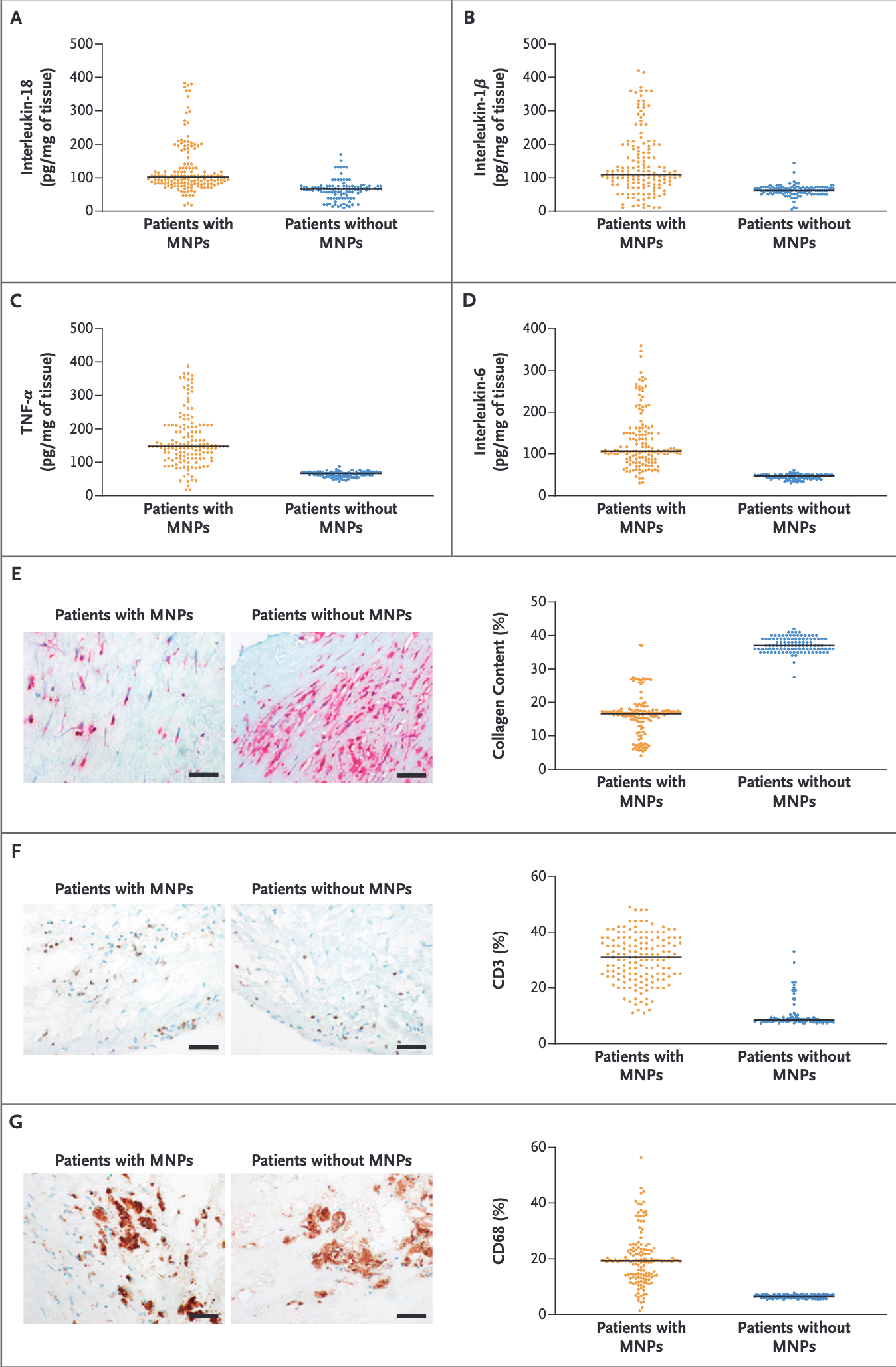
Electron microscopy showed particles that are irregular both inside and outside of macrophages. The particles do not resemble the usual organic material because of their irregular shape.
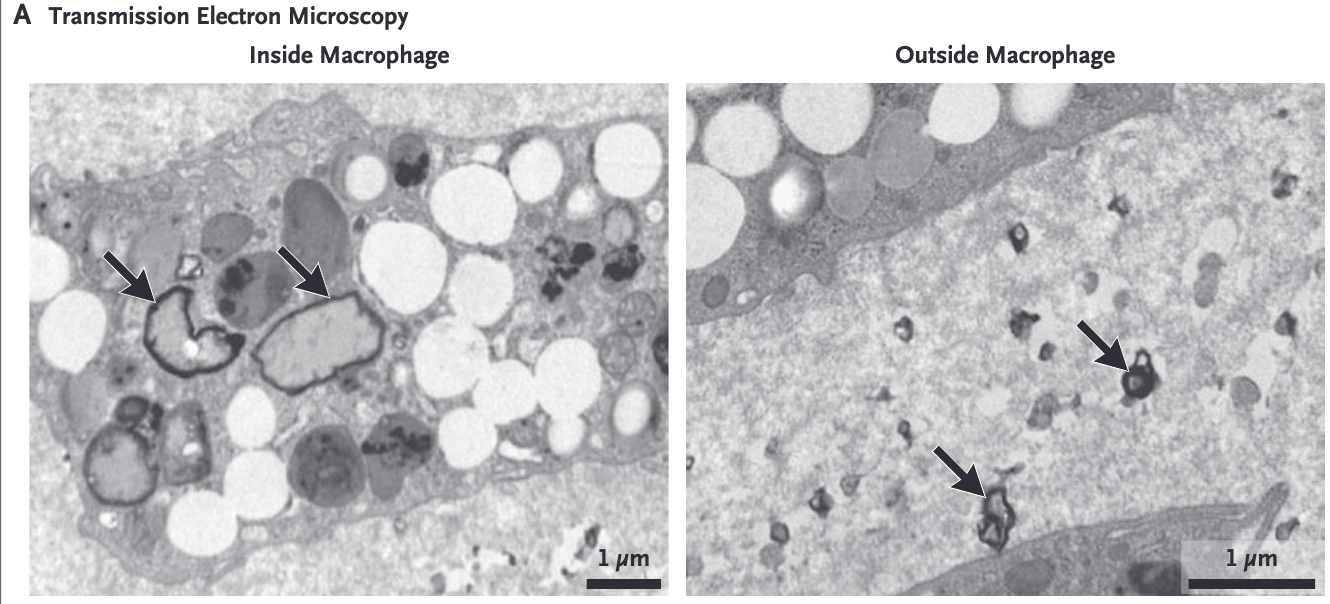
The study's primary endpoints were nonfatal MI or stroke and death from any cause. In the no MNP-detected group, 8/107 or 7.5% had one of the three endpoint occurrences, and in the MNP-detected group, it was 30/150 or 20%.
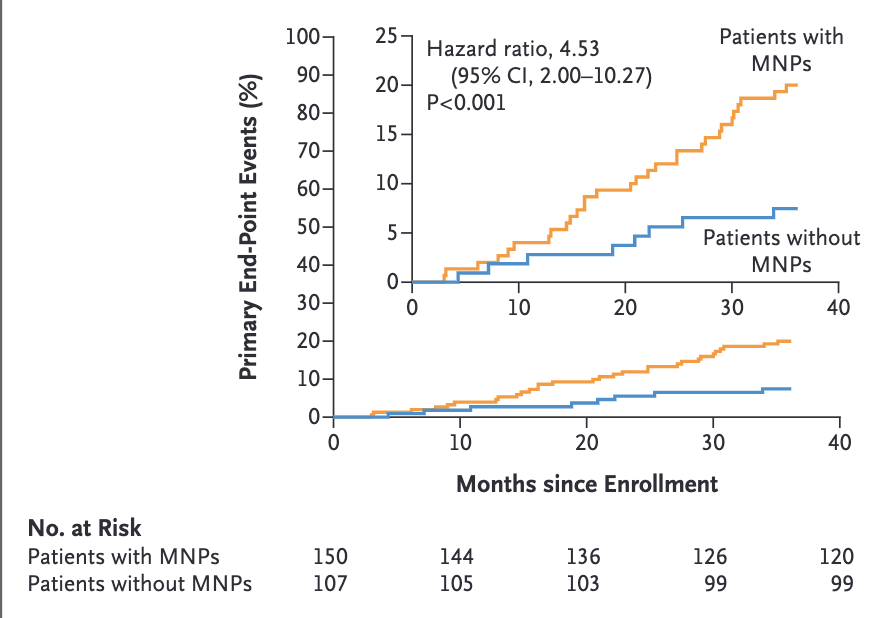
Key Points from the discussion:
The results do not prove causality - could be other shit in the environment or socioeconomic issues, or other food and drinking water variables.
The findings suggest that nanoplastics, rather than microplastics, might accumulate in sites of atherosclerosis.
The large majority of particles detected were below the 200-nm threshold suggested for gut and other barriers and were visible in the extracellular space as scattered debris, which aligns with the notion that the absorption and distribution of MNPs increase as particle size decreases.
Recommendations from me:
- Don't drink water or any liquid from plastic bottles.
- Do not heat any plastic in microwaves, especially if they contain food or liquid.
- Install a carbon filtration system for your water in your home.
- Avoid water from water coolers with large plastic jugs.
- Stop buying, to the extent possible, products in plastic containers. I stopped using single-use plastic bottle soap dispensers in 2019 when I read this from Tim Ferris: "Amolliar Mason Jar Foaming Soap Dispenser with unscented Dr. Bronner’s soap. For the last few months, especially after a conversation with Tony Fadell (coming soon), I’ve tried to reduce single-use plastic. If you combine this Mason jar gadget with some Dr. Bronner’s soap in a 1:5 soap-to-water ratio, it has the added benefit of lasting nearly forever. It saves a lot of shopping hassle, saves a ton on cost, and it produces far less waste. I’m really digging it and am replacing all hand soap in the house with this setup."
